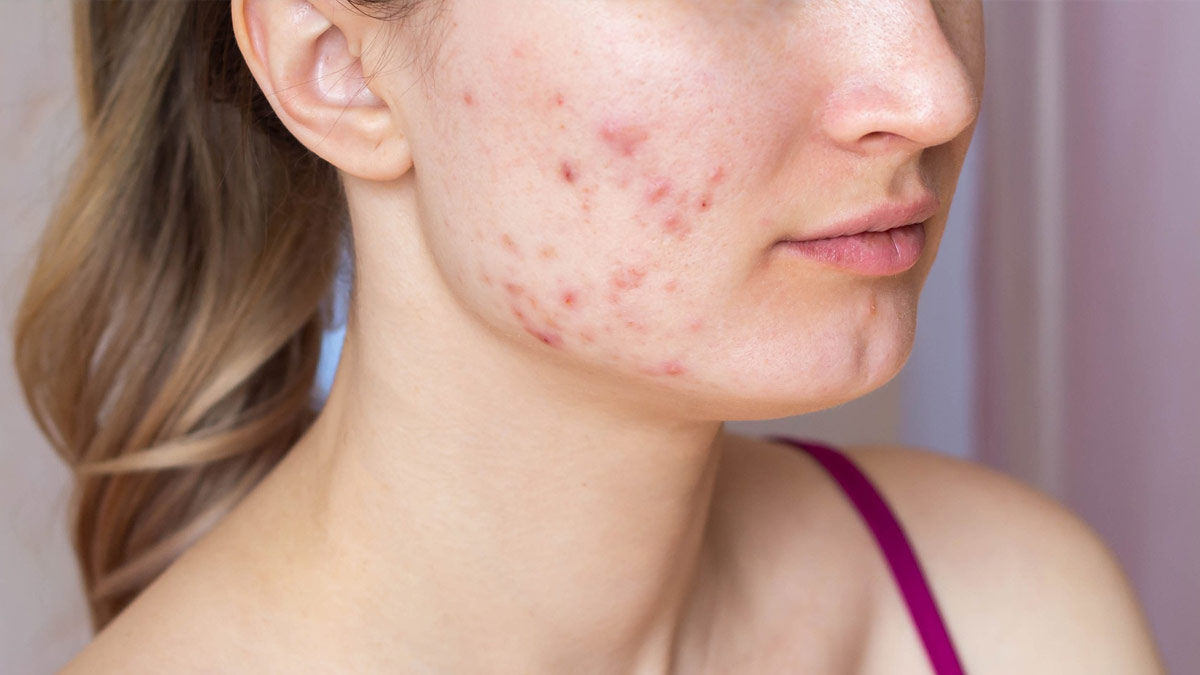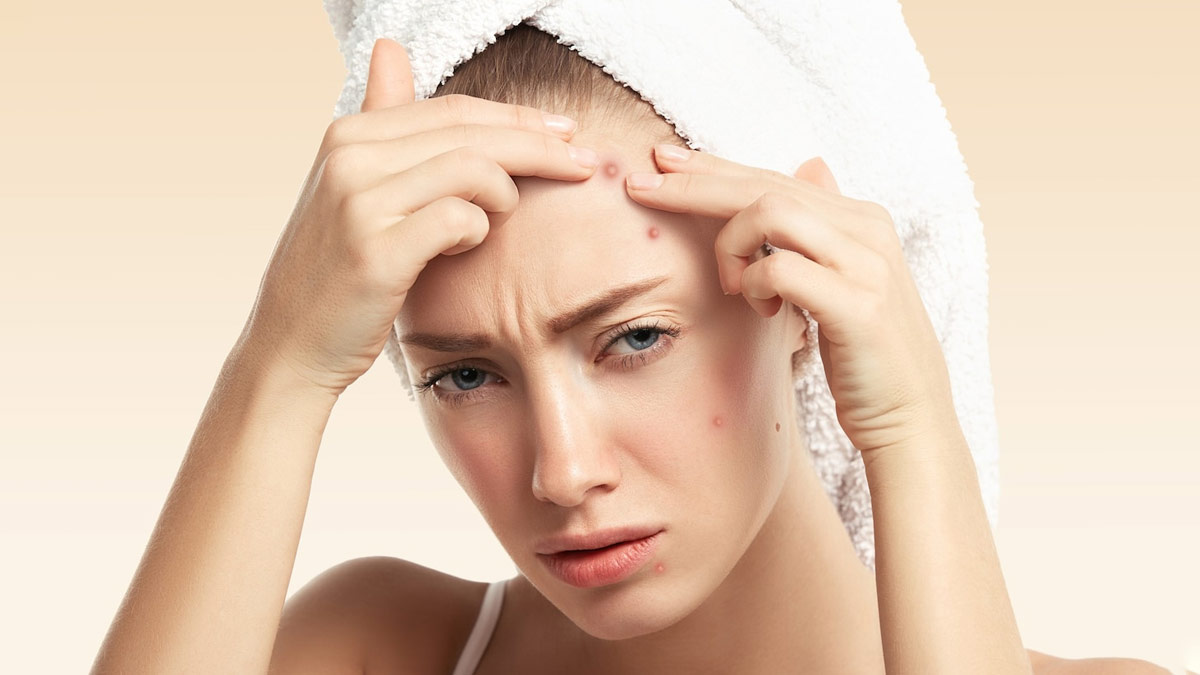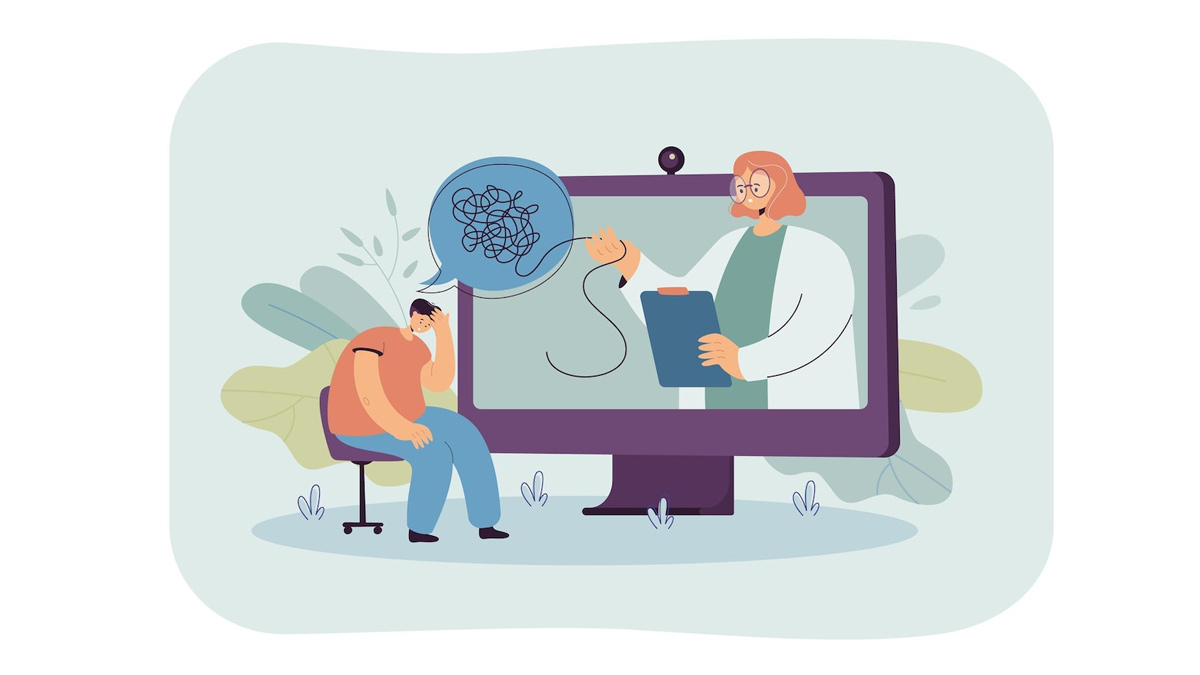
I have struggled with acne all my life. Those visible marks and blemishes on the skin make me question my self-worth. I have experienced first-hand humiliation and criticism due to acne which made me doubt myself. “Was I even beautiful?”, “Would people like me?”, “Would I ever feel good about myself?”; all these questions would cause me distress.
Never would I have thought that I would turn to therapy for this. But the kind of mental health issues I faced because of the incessant rebukes and discrimination for a mere pimple led me to therapy. Accepting myself for my acne-ridden skin has been a turbulent ride filled with bouts of low self-esteem and apprehensions.
In advertisements, movies, television series and magazines, I see no representation of skin with acne. All beauty products cater to the idea that acne is abnormal, which leaves little to no space to inculcate sensitivity in people on this issue. The only skin portrayed as perfect is smooth, fresh, clear-faced, and fair. Most mainstream beauty gurus and lifestyle bloggers also diligently hide their acne with filters and tricky lighting.
Filters on social media have only increased my insecurities like others who often choose to hide behind these to look “picture-perfect”. A recent report released in 2021 based on the Facebook whistleblower, Francis Haugen’s research explained how young girls felt inferior looks-wise because of these filters. Having experienced this inferiority complex, therapy enabled me to develop self-confidence and love for myself despite all my so-called flaws.

Like any menstruating girl, I experienced acne flaring up on my skin every month. The dermatologist who I used to see termed it “hormonal acne”, the ones that appear during your periods.
After spending thousands of rupees in treatment, I realised that whenever I left the ointments and prescribed medications, the acne bumps and pimples would reappear overnight. Either the dermatologist was a quack or there was a deeper problem at play. I would find out about it later.
At the mere age of 13, I started receiving remarks about my skin, which exposed the inherent bias people had towards “imperfect skin”. A boy in my class made it a point to call me “Pimply” and turned me into a laughing stock. He was a bully, but I did not have the guts to say anything to his face. I would quietly accept my fate and dread going to school.
In high school, I stole one of my mother’s concealers in hopes of hiding my acne. My skin did look clear during that time, but it gave way to clogged pores which only heightened the chances of getting more acne by blocking ventilation for the skin to breathe.
I felt that oftentimes at parties, boys would ask me out for a dance or take my number as I was dressed up, and because my face looked pretty with all that makeup on. I remember meeting one of them again and how they commented on the difference in my looks, implying how much better I looked before with all those colour correctors and concealers.
Finally in my 20s, I started taking therapy in hopes of building up my confidence and working on my depreciating self-worth based on my looks.

I was clearly not ready for the mind-boggling realisations that my therapist made me rationalise overtime. In my first therapy session, she asked me probing questions which made me uncomfortable. How could I share my deepest thoughts with a total stranger? But, that was the point. A good therapist is non-judgemental, compassionate, confrontational at times, and makes you see yourself from a new perspective –- she ticked all the boxes.
By the second session, I was letting out all my angst; all those years of living with acne were brutal for my mental health. I was one of the lucky ones to find a therapist who was the right fit. I vented out all the humiliation and embarrassment I had faced till date. I felt at peace, at home.
I had a habit of using filters to smoothen out my skin texture which my therapist told me could cause body dysmorphia (being triggered and feeling discomfort with your appearance). I was edging on this before I started motivating myself to look closely in the mirror and give myself a pep-talk, which was essentially a monologue on how beauty is only skin deep. The kind of self-talk you practice can affect your mood and thoughts.
My therapist also suggested self-affirmations that surprisingly helped me. I used to pen down positive things about myself in my journal. “I am more than my appearance”, “Acne does not define me”, “My beauty lies within,” and more such statements reinforcing a positive self-image.
My therapist also bluntly said that the power of feeling good about myself was solely my responsibility; nobody could control my mood. The fact that there would always be extenuating circumstances and external influences like petty comments made me realise that knowing my self-worth, one which is not governed by other’s perceptions of me, is the way to go forward.
Don't miss:How To Stop Picking Your Pimples
After being diagnosed with polycystic ovary syndrome, things began to make sense. My skin issues were due to PCOS!
Moreover, after years of being unaware of what pills I was popping as a teen for acne I realised all of them were steroids with side-effects that included PCOS, depression, nausea, vomiting, and more.
Therapy came to the rescue as I built a roster of coping mechanisms for whenever I was down and low. Some of them included sweating it out with yoga and exercise, while others included a number of leisure activities like watching stand-ups on Youtube to buying non-comedogenic makeup. Any kind of distraction helps, but to prevent the deluge of thoughts from overpowering me, what was required was conditioning myself to change my thought patterns which could only be done by not being rigid about beauty standards, and feeling heard and seen.
The way that worked for me was seeing myself from the perspective of a loved one, one who was non-judgemental, non-critical, and not superficial. The other one was to consume content that helped me feel represented by pop-culture, which included scrolling through pages that embraced acne or following celebrities who went truly bare-faced with their selfies. Seeing the so-called awkward pimple placed on someone’s forehead like a “bindi” became a much less horrifying picture in my head, having been in that person’s shoes.
However, another problem popped its head that I hadn’t anticipated. Every week I would eagerly wait to meet my therapist, which became like an unhealthy crutch for me. She made me come to terms with the fact that I needed to build self-reliance as relying on her solely could lead to toxic codependency. I needed to learn how to deal with the hatred and self-consciousness on my own too. She wanted me to take responsibility for my actions and stop appeasing people. She often said, “Logo ka kaam hai kehna” (Let people speak).
I slowly weaned off therapy, like people wean off their medications. I only went once every two weeks instead of once a week. My therapist agreed to this as I was getting better with time. I began writing a journal based on her advice on the days when I was not taking therapy and needed someone to confide in.
With time, I have embraced my skin for its follies and flaws. It is but human to have acne and accepting that has made all the difference.
I don’t know whether there will ever be a point in my life when I have fallen solemnly and completely in love with myself, but I guess it is a long journey with no destination in place, and I am just getting started.
Our aim is to provide accurate, safe and expert verified information through our articles and social media handles. The remedies, advice and tips mentioned here are for general information only. Please consult your expert before trying any kind of health, beauty, life hacks or astrology related tips. For any feedback or complaint, contact us at compliant_gro@jagrannewmedia.com.